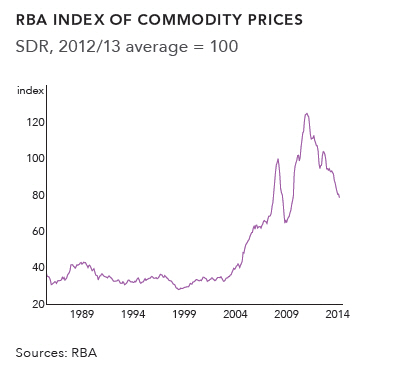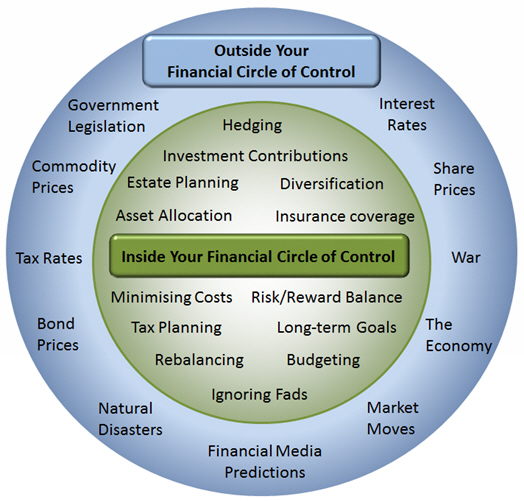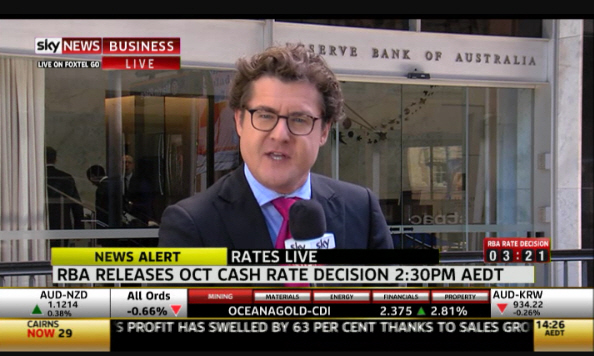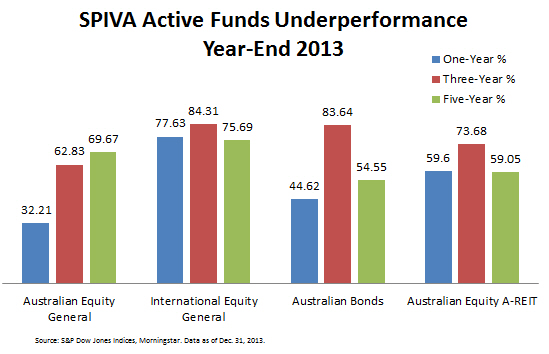Economic Overview
A sluggish and uneven global economy, geopolitical strains, falling commodity prices and a resurgent US dollar were key areas of focus for investors in the September quarter.
A major theme was divergent central bank policies. As the US economy gathered pace, the Federal Reserve prepared to end its bond buying program and flagged potential future interest rate rises. In contrast, the European Central Bank responded to stalling activity and signs of deflation by cutting its benchmark rate in September to a record low of 0.05% and flagged further stimulus.
China’s economy also continued to show signs of slowing. Service sector orders shrank for the first time since 2008, property markets declined and factory output grew at its weakest pace in six years.
The US dollar had its strongest quarter in six years. The rising dollar and weaker global growth hit commodity prices and this hurt commodity sensitive currencies like the NZ and Australian dollars.
In Australia growth cooled with a decline resource investment. Public spending fell as the government sought to pare back the budget deficit, while unemployment reached a 10-year high above 6%. The RBA maintained interest rates at a record low of 2.5%, however rumblings continued about macroprudential policy to curb residential real estate speculation.
Economic Overview
Asset Class Returns
The following outlines the returns across the various asset classes to the 30st September 2014.

Slowing global economic activity, signs of a turnaround in earnings, geopolitical strains and positioning for a tightening in US monetary policy combined to take the heat out of equity markets as the September quarter came to an end.
The quarter had begun in positive fashion. The MSCI World Index reached record highs in July, buoyed by strong US economic data and promises from the European Central Bank of continued accommodative policy. But by August, signs of slower Chinese growth, the imposition of sanctions against Russia and weaker earnings news took stock markets lower.
The US dollar made strong gains across the board on the view that the Federal Reserve would lead the developed world in reducing stimulus. Both the $NZ and $A fell hard, cushioning the impact for unhedged investors from the late quarter retreat in global equity markets.
In developed markets, value underperformed growth, while small caps lagged large. With risk aversion rising, emerging markets lagged developed markets. There was significant divergence in country returns, though, with Egypt, the United Arab Emirates and Qatar all reporting significant gains, while Russia, Greece and others were disappointing.
Australia again lagged global markets as falling commodity prices hit resource stocks. Iron ore prices fell 17% in the quarter to reach five-year lows. However, in contrast to other developed markets, there were modest small and value premiums in the quarter.
Across the Tasman, the NZX 50 Gross Index posted modest returns for the quarter of a little over 2%, with energy and utility companies among the best performers.

Your Financial Circle of Control
Over the last month of the quarter there was a consistent sell-off that helped to erase most of the year’s gains on the local sharemarket. It had many investors asking “what should we do?” Sure, the ASX sell-off was 5.8%, but putting that in perspective you can look back to May 2012 when the ASX fell 6.9% and May/June 2013 when the ASX fell 7.01%.
From there the ASX finished up 18.84% in 2012 and followed with 19.66% in 2013 and the questions faded into the background. There’s no suggestion the ASX will post a miraculous 19% recovery in the final quarter, but point is no one knows what is happening next.
So is it wise to concern yourself with what happens to one section of your portfolio in one month?
The process of investing is relatively straight-forward over the longer term because we have control over our financial and investment planning. Usually it’s the short term that complicates it because distractions we have no control over creep into our concerns.
The following graphic should serve as a useful reminder of what we can and can’t control.

People who have done their financial and investment planning have essentially taken care of everything within their financial circle of control. These are actionable items we all have the ability to focus on and ensure they are resolved ahead of anything that may impact them.
Outside our financial circle of control it’s a different story. You’ll notice everything outside our financial circle of control are things we’ll hear or be told about by the media. None of these items are actionable by us. They are completely independent of our influence and even when we spend our time focused on them, we have zero chance of changing or resolving them.
Yet the media expects us to regularly turn our attention to them for their own financial ends – keeping our eyes and ears glued to their advertising.
Take interest rates for example. On the first Tuesday of every month the media spends the day hyping up the upcoming interest rate decision. They send reporters to stand outside the Reserve Bank in Martin Place to give a sense of theatre and importance to the story.

Then, as has been the case recently, interest rates remained unchanged. The RBA had already flagged a term of likely interest rate stability and the media knew this. Yet they still spent untold hours trying to engage us with a foregone conclusion. And even if rates did move, you’d long ago taken control of how any rate change will affect you by previously fixing your mortgage, taking a variable rate or maybe locking in a term deposit.
It’s a similar scenario when it comes to your investment portfolio. It’s been constructed based on the level of risk you’re prepared to accept to achieve your long-term goals. This happens with an understanding markets are volatile and they can move upward and downward. This is why a portfolio is diversified because not all asset classes and sub-asset classes behave the same way at the same time – the spread aims to lower volatility.
It’s also been constructed to minimise costs, possibly hedge international holdings against dollar movements and be tax effective in line with your long term strategy. After focussing on everything within our control, when the portfolio was constructed, the rest falls beyond our control and is a distraction.
The media can make their predications and the market will move unpredictably, but trying to assert control by reacting to these things will inevitably cost more. That will mean increased transaction costs, higher taxes and the obvious tendency to follow the herd – who usually guess wrong when it comes to market timing.
Within our financial circle of control we have the ability implement everything that will determine our long-term financial goals. With that done, it’s only when we allow issues outside our circle of financial control to sit at the forefront of our minds that we begin to place our long-term goals at risk.
So no matter what the pundit on the TV or the expert in the newspaper says will happen in the short term, remember it’s beyond our control. Our peace of mind should rest on the fact we’ve already dealt with the matters within our control to take care of the long-term.
SPIVA Results (or Fee for Failure)
The SPIVA Australia Scorecard reports on the performance of actively managed Australia mutual funds vs. that of the benchmarks. The results for 2013 were released during the September quarter and they were again damning for active fund managers.
As you can see from the chart, it’s a consistent theme over three and five year periods that the majority of active fund managers will underperform their benchmark. In other words, investors in those funds would have been much better being in a low cost passively managed fund – one that doesn’t pay managers to guess what will happen next.

The theme of underperformance is consistent across the asset classes, but most pronounced when it comes to international equities. In Australian equities, active fund managers had a better 2013 with only 32% of them underperforming their benchmark, but it appears the longer the timeframe they’re measured over, the less they show any “skill” at beating the market.
We’ll continue to cover this story each year as it underlines the importance of our investment philosophy. Particularly, how it’s pointless to pay extra to active managers when their performance doesn’t warrant it. But what you’re probably wondering is how do these funds continue to exist when they can’t even get market returns?
It’s pretty simple – clients of bank-owned financial planners (over 80% of the industry) will often find themselves pushed into these funds through the vertical integration of the banks’ businesses.
Unless the clients of bank-owned planners better understand this, they’ll continue to pay more for below benchmark returns.
With thanks to DFA Australia.
This material is provided for information only. No account has been taken of the objectives, financial situation or needs of any particular person or entity. Accordingly, to the extent that this material may constitute general financial product advice, investors should, before acting on the advice, consider the appropriateness of the advice, having regard to the investor’s objectives, financial situation and needs. This is not an offer or recommendation to buy or sell securities or other financial products, nor a solicitation for deposits or other business, whether directly or indirectly.
Mancell Financial Group is an Authorised Representative No. 226266 and Credit Representative No. 403187 of FYG Planners Pty Ltd, AFSL/ACL No. 224543. ABN 29 009 541 253 This information is general in nature and readers should seek professional advice specific to their circumstances.




